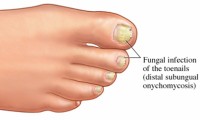-
Recent Study Reports on Liver Cancer Risks and Detection
- Source: Healio
- 565
- July 19, 2018
-
Spero Gets Grant of $54M for Biodefense R&D for SPR994
- Source: FierceBiotech
- 806
- July 18, 2018
-
‘Hackathon’ to Develop VR Tools for Patients Organised with Royal Free Help
- Source: DigitalHealth
- 617
- July 17, 2018
-
FDA Clears First Autonomous AI Diagnostic System Rolled out by University of Iowa Healthcare
- Source: HealthcareIT News
- 943
- July 15, 2018
-
Cost Effective Nanotech Based on Efinaconazole Treatment
- Source: ScienceDaily
- 729
- July 13, 2018
-
FDA Clearance for Algorithm that Quantifies Coronary Artery Calcification
- Source: MobiHealthNews
- 726
- July 13, 2018
-
Medtronic Releases Results from One-Year Insulin Pump Study
- Source: Drug Delivery Business
- 735
- July 12, 2018
-
A Scientifically-Supported App for Early Stage Dementia by SMART Brain Ageing
- Source: HitConsultant
- 842
- July 10, 2018
-
Gene Editing Control Using Amino Acids
- Source: FierceBiotech
- 652
- July 9, 2018
-
Philips Launches First eICU in Japan
- Source: BusinessInsider
- 772
- July 5, 2018
your submission has already been received.
OK
Subscribe
Please enter a valid Email address!
Submit
The most relevant industry news & insight will be sent to you every two weeks.













